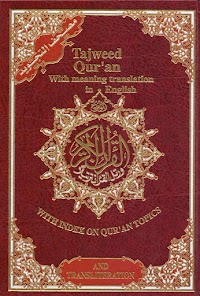In the Holy Scriptures, we often notice frequent usage of the terms of lordship and godhood. In many cases, such usage is not intended as a literal but metaphorical one, given the inapplicability of lordship and godhood to those described as “lords” or “gods” in some positions.
Unfortunately, such metaphorical usage gave rise to clearly false beliefs among the followers of some Abrahamic religions, especially Christianity, in the absence of the original versions of the Gospel or knowledge of the native language of such versions as well as their usages, be they literal or metaphorical.
The loss of the original versions which must have been written during Jesus’ lifetime or shortly after his Ascension and the consequent distortion and alteration led to big mistakes especially in the Christian creed.
In this article, I will deal with the terms of lordship and godhood both in the Qur’an and the Bible, especially the New Testament, to indicate which meanings are literal and which ones are metaphorical. I will begin with the term “Lord” both in the Qur’an and the Bible.
The Term “Lord”
The term “Lord” (Rabb in Arabic) is used in the Qur’an to refer to the Deity in all of its usages with a few exceptions. For example, we read in the second verse of the Opening Chapter of the Qur’an (Al-Fatihah) after Basmalah (the introductory verse: in the name of God, Most Gracious, Most Merciful):
[All] praise is [due] to Allah, Lord of the worlds (Al-Fatihah 1:2)
We also read:
O mankind, worship your Lord, who created you and those before you, that you may become righteous (Al-Baqarah 2:21)
It is clear enough that the term “Lord” is used here to refer to the Deity.
However, there are a few exceptional usages of the term “Lord” in the Qur’an which refer to human masters rather than the Deity. By the way, such a usage was common in classical Arabic. Old Arabs used to use the term “Lord” to mean a master or an owner rather than the Deity.
For example, the Qur’an relates the story of Prophet Joseph (Yusuf in Arabic) as follows:
And she, in whose house he was, sought to seduce him. She closed the doors and said, “Come, you.” He said, “[I seek] the refuge of Allah. Indeed, he is my lord, who has made good my residence. Indeed, wrongdoers will not succeed.” (Yusuf 12:23)
The Qur’an here tells us that Prophet Joseph referred to the ruler (Al-Aziz in Arabic) as “my lord”, i.e. my master. He did not intend the Deity.
Similar usages are repeated in the same Qur’anic chapter. The Qur’an also quotes Prophet Joseph as saying:
“O two companions of prison, as for one of you, he will give drink to his lord of wine; but as for the other, he will be crucified, and the birds will eat from his head. The matter has been decreed about which you both inquire.” And he said to the one whom he knew would go free, “Mention me before your lord.” But Satan made him forget the mention [to] his lord, and Joseph remained in prison several years. (Yusuf 12:15)
And the king said, “Bring him to me.” But when the messenger came to him, [Joseph] said, “Return to your lord and ask him what is the case of the women who cut their hands. Indeed, my Lord is Knowing of their plan.” (Yusuf 12:50)
Since the usages of the term “Lord” as a reference to other than the Deity is very few in number in the Qur’an, its metaphorical usage for other than Allah has not led to any dogmatic problem.
As for the term “Lord” in the Bible, we notice that it is used to refer to the Deity and Jesus as well. In the Old Testament, we read: “My son, if you come forward to serve the Lord, prepare yourself for temptation.” (Sirach 2:1) The term “Lord” here is intended for the Deity.
In the New Testament, we also read: “Believe in the Lord Jesus, and you will be saved–you and your household.” (Acts 16:31) We also read: “So then, just as you received Christ Jesus as Lord, continue to live your lives in him, rooted and built up in him, strengthened in the faith as you were taught, and overflowing with thankfulness.” (Colossians 2:6-7) In those verses, we notice that the term “Lord” refers to Christ Jesus rather than the Almighty Deity.
 |
In many cases, the usage of the terms of
lordship and godhood in the Holy Scriptures is not intended as a literal
but metaphorical usage
|










Post a Comment
EmoticonClick to see the code!
To insert emoticon you must added at least one space before the code.